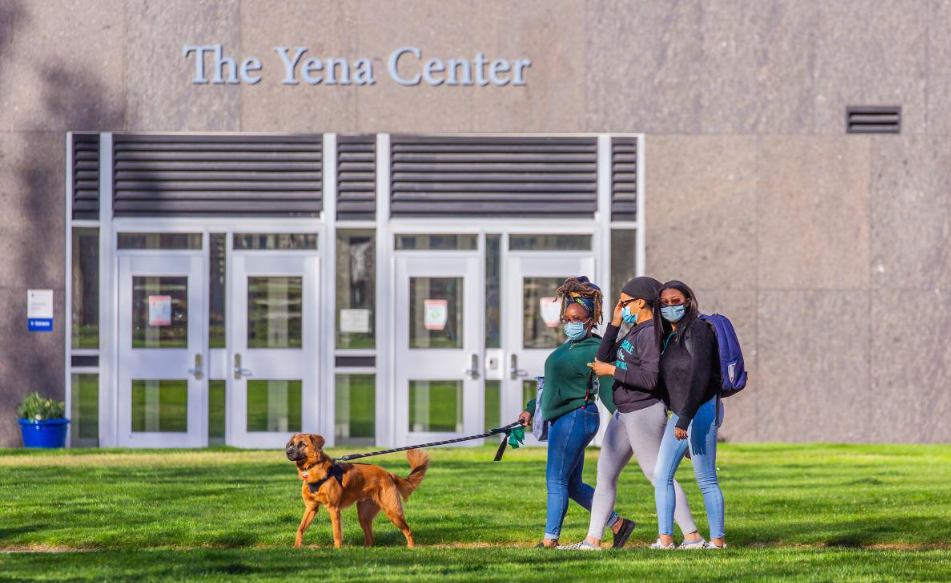College life, with its unique blend of challenges and opportunities, can be both exhilarating and demanding. For many students, the presence of a loyal companion can provide comfort, reduce stress, and add joy to their daily routines. This article dives into the world of pets and explores the best options for college students, considering factors like living arrangements, time commitments, and the emotional benefits of having a furry or feathery friend by your side.
Table of Contents
best pets for college students
- Low-Maintenance Marvels: College schedules can be unpredictable, making low-maintenance pets an ideal choice for students. Fish, turtles, and small rodents like hamsters or gerbils are examples of pets that require minimal daily care and are well-suited for busy college lifestyles.
- Feline Friends – Independent and Affectionate: Cats are renowned for their independent nature, making them suitable companions for students. They can adapt to apartment living, are relatively low-maintenance, and provide the perfect balance of companionship and autonomy.
- Canine Comrades – The Ultimate Best Friend: While dogs require more time and commitment, their loyalty and companionship make them a popular choice for many college students. Smaller breeds or those with lower energy levels, like French Bulldogs or Cavalier King Charles Spaniels, can thrive in apartment settings.
- Feathered Friends – Birds as Buddies: Birds, such as budgies or cockatiels, offer a unique form of companionship with their charming personalities and vibrant plumage. Their smaller size and ability to thrive in cages make them suitable for dormitory or apartment living.
- Therapeutic Tails – The Benefits of Emotional Support Animals (ESAs): Some college students may benefit from the companionship of emotional support animals. This section explores the legal aspects of ESAs, the benefits they provide in terms of mental health, and the process of obtaining proper documentation for their presence in college housing.
- Pet-Friendly College Campuses: Recognizing the positive impact of pets on students’ well-being, an increasing number of colleges are becoming pet-friendly. This section explores notable pet-friendly campuses, their policies, and the supportive communities they foster.
- Budget-Friendly Pet Care Tips: College students often operate on tight budgets, so understanding the financial responsibilities of pet ownership is crucial. This section provides practical tips on budgeting for pet care, including considerations like food, veterinary expenses, and grooming.
- The Importance of Responsible Pet Ownership: Owning a pet comes with responsibilities. This section emphasizes the importance of responsible pet ownership, including regular veterinary visits, proper nutrition, and ensuring that the pet’s needs are met in alignment with the student’s lifestyle.
Choosing the best pet for a college student
Choosing the best pet for a college student is a big decision! It depends on your lifestyle, living situation, and preferences. Here are some factors to consider:
Space and Living Arrangements:
- Dorm life: Smaller animals like fish, hamsters, or hermit crabs might be more suitable due to limited space.
- Apartment living: Consider noise levels and pet restrictions imposed by landlords. Small dogs, cats, or quiet birds might be options.
Time Commitment:
- Busy schedule: Low-maintenance pets like fish, reptiles, or hermit crabs may be ideal.
- More free time: Dogs, cats, or rabbits require regular walks, playtime, and interaction.
Personality and Preferences:
- Active person: Consider energetic dogs that need walks and outdoor time.
- Calm and quiet: A low-key cat or a fish tank might be a better fit.
- Social and affectionate: Guinea pigs, rats, or budgies can be quite friendly and interactive.
Here are some specific pet suggestions based on these factors:
Low maintenance:
- Fish: Beautiful and calming, but require regular tank cleaning and water changes.
- Hermit crabs: Easy to care for and interesting to watch, but not very interactive.
- Reptiles: Snakes and lizards can be low-maintenance, but require specific temperature and humidity conditions.
Moderate maintenance:
- Hamsters: Playful and energetic, but require a spacious cage and regular cleaning.
- Guinea pigs: Social and friendly, but need exercise space and daily food and water changes.
- Rats: Intelligent and affectionate, but can be smelly and require cage cleaning.
Higher maintenance:
- Cats: Independent and low-maintenance, but need a litter box and playtime.
- Small dogs: Can be cuddly and fun, but require walks, training, and regular interaction.
- Birds: Interesting and interactive, but can be noisy and require a large cage and regular cleaning.
Remember that any pet is a responsibility and requires commitment. Make sure you research the specific needs of any animal you are considering and ensure you have the time and resources to provide proper care.
Conclusion: Choosing the best pet for college life involves thoughtful consideration of various factors, from the type of pet that suits the student’s lifestyle to the responsibilities and benefits of pet ownership. Ultimately, the right pet can bring immeasurable joy, companionship, and emotional support to a college student’s life, making the academic journey even more memorable and rewarding.


You may like it
Work Experience Ideas: 15 Ways to Gain Professional Skills and Enhance Your Resume
is WGU a Good School? Evaluating the Quality of Western Governors University
What Is a Trade School?
Free Laptop with Food Stamps & EBT Card : How to Get for snap recipients in 2024
Free Samsung Galaxy Government Phones: Step by Step Guide in 2024
What is a Two Year College vs University: Understanding the Differences for Your Education